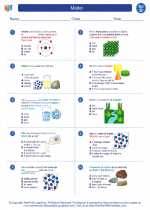Bladder
The bladder is an important organ in the human body that plays a crucial role in the urinary system. It is a hollow, muscular organ located in the pelvis, just behind the pubic bone. The primary function of the bladder is to store urine that is produced by the kidneys until it is ready to be excreted from the body.
Structure of the Bladder
The bladder is made up of several layers of tissue, including the urothelium (a type of specialized epithelial tissue), smooth muscle, and connective tissue. The inner lining of the bladder, called the urothelium, is responsible for preventing urine from being absorbed back into the body and protecting the underlying tissue from the acidic nature of urine.
Function of the Bladder
When the bladder fills with urine, it expands to accommodate the increasing volume. Nerve signals from the bladder alert the brain when it is getting full, and when it is convenient, the brain sends signals to the bladder muscles to contract, allowing urine to be expelled through the urethra.
Common Bladder Conditions
Several conditions can affect the bladder, including urinary incontinence (inability to control urination), urinary retention (inability to empty the bladder), urinary tract infections (UTIs), and bladder cancer. It is essential to maintain a healthy lifestyle, including staying hydrated, practicing good hygiene, and seeking medical attention for any persistent bladder issues.
Study Guide
- Describe the structure of the bladder.
- Explain the function of the bladder in the urinary system.
- List and describe common bladder conditions.
- Discuss the importance of maintaining a healthy bladder.
◂Science Worksheets and Study Guides Fourth Grade. Matter

 Worksheet/Answer key
Worksheet/Answer key
 Worksheet/Answer key
Worksheet/Answer key
 Worksheet/Answer key
Worksheet/Answer key
 Worksheet/Answer key
Worksheet/Answer key
 Vocabulary/Answer key
Vocabulary/Answer key
 Vocabulary/Answer key
Vocabulary/Answer key
